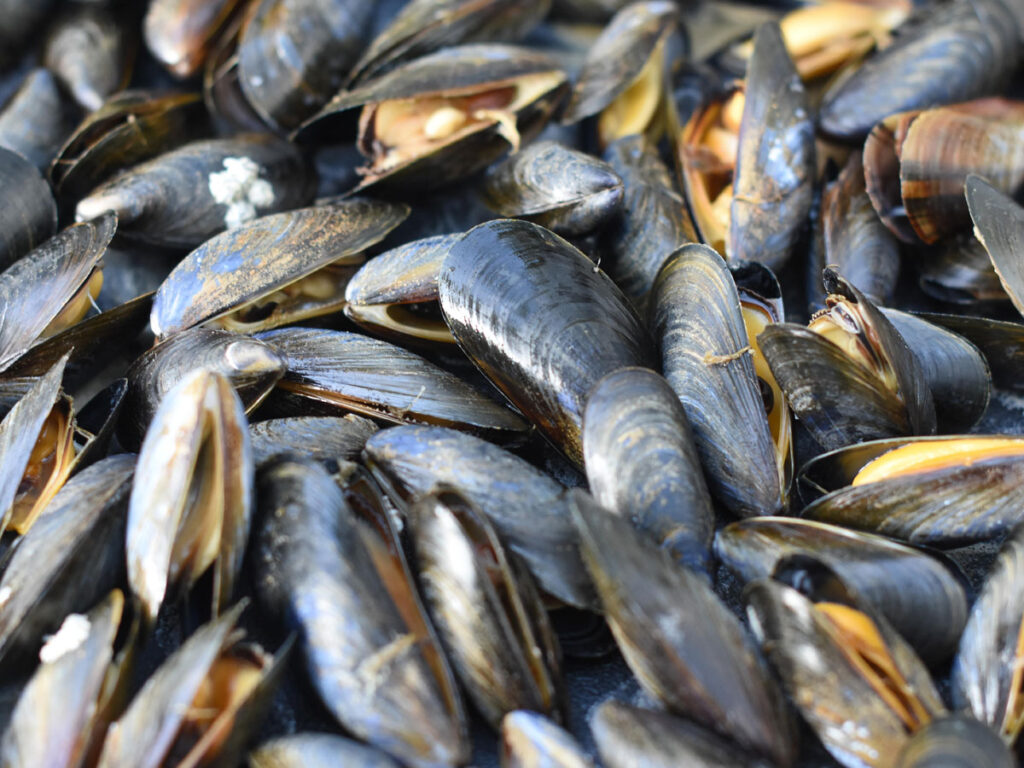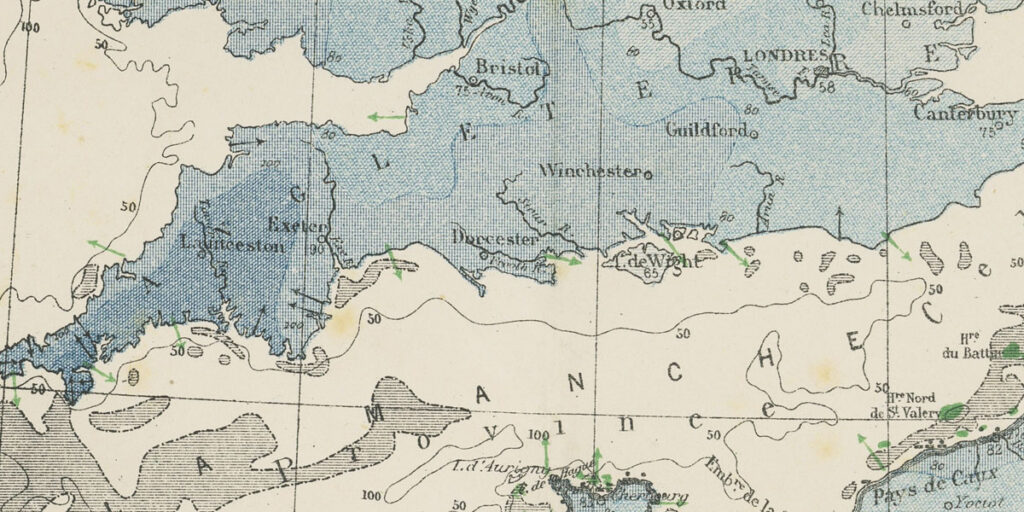
Last updated: 1 March, 2025 @ 10:43
Affordable, plentiful and delicious – we all know mussels are great. However, thanks to a recently discovered historic map, it turns out that mussels are also good for the health of our oceans.
Researchers from the University of Plymouth have spent the last 10 years examining the environmental impact of the UK’s first large scale offshore mussel farm, which was established in Lyme Bay, off the coast of South Devon in 2013.
In that time, the seabed beneath the farm’s ropes has begun to undergo a transformation as mussels from the lines are deposited on the seabed below.
This has seen it change from muddy sediment with limited biodiversity into reefs, which research has shown have the potential to benefit a number of commercial fish and crustacean species and the ecosystem more generally.
Home to shellfish reefs once more
However, a recently uncovered historic map – has revealed this might in fact be a form of restoration rather than creating habitats never seen in the area before.
Dating from 1871, the French map describes a large area of the seabed – stretching from Torquay in the west and beyond Lyme Regis to the east – as being home to ‘rich shell beds’.
Scientists believe these are likely to have been oyster or mussel reefs that have long since been destroyed through the use of bottom towed fishing gear during the 20th century.
With such practices banned following the designation of the Lyme Bay Marine Protected Area (MPA) – and the mussel farm’s three sites located above the old shell beds – it is allowing the region to become home to shellfish reefs once more.

(Image: Hannah Wisdom)
A positive impact on the health of the ocean
Dr Emma Sheehan, associate professor in Marine Conservation and senior author on the study, said: “When we first started to monitor the mussel farm in 2013, we hoped to find evidence of its potential to restore the health of the seabed.
“That is something we have shown consistently, with new species of marine flora and fauna regularly being seen within its ropes and on the seabed.
“However, to find out that such habitats were found in the region 150 years ago is really exciting.”
Dr Sheehan said it shows that the farm is ‘not only having a positive impact on the health of the ocean now, but also returning the seabed to some semblance of its former state’.
Mussel farm is providing refuge
In the study, published in Science of the Total Environment, researchers also highlight how the shellfish reefs that have been recreated over the past decade are being used by a number of commercially important species.
Using a combination of acoustic tags and underwater monitoring equipment, scientists found that individual European lobsters remained beneath the farm for up to 283 days using both the farm anchors – and areas of seabed dominated by fallen mussels – for feeding and refuge.
By contrast, brown crabs showed little willingness to stay within the farm’s infrastructure, and all tagged crabs had left the area of the farm under surveillance within nine days.
This, scientists say, could be evidence that the mussel farm is providing refuge and similar feeding opportunities for lobster and crab as their typical habitat on rocky reefs.
A productive, biodiverse habitat
John Holmyard, managing director at Offshore Shellfish Ltd, which manages the Lyme Bay mussel farm, said: “These findings show that an area of flat, muddy and degraded seabed can be restored into a productive, biodiverse habitat.
“Through the location of a carefully designed offshore mussel farm, we are creating an effect comparable to that seen from the statutory protection of a rocky reef area.
“It is enabling lobsters and crabs to feed and grow within the protection of the farmed area before they move out and provide further benefits to surrounding fisheries.”
Earlier in 2024, Fish Face Seafood Blog reported that researchers from the Marine Biological Association and the University of Exeter found that mussel farms had significantly higher numbers of commercially and ecologically important fish than areas outside of the farms.
Mussels: More information
Mussels are affordable, good for us, and best of all, incredibly quick and easy to cook – find out more in the Fish Face Seafood Blog guide to the mighty mussel.